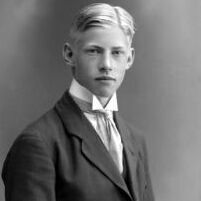Featured Story: The Thousandth Regiment
Well, it's another Monday and a great time to look at another featured Story! Thank you to the review team for all your work to share some of the stories you've read on site!
-
 6
6
-
 2
2







Reviewer: Parker Owens
Status: Complete
Word Count: 8,732
We learn of Shakespeare, Milton, and Spenser in high school, and many of us breathe a sigh of relief when the poetry unit is over. What a pity. The sonnet form in poetry has spoken to people for over half a millennium. Here, AC Benus has translated a masterwork, a sonnet cycle unknown to nearly everyone in the English-speaking world.
The Thousandth Regiment records in poetry the experiences and impressions of Hans Ehrenbaum-Degele, a German junior officer and poet, during and just prior to the First World War. He was also Gay. This contains both history and story, non-fiction and dramatic arc. Through Benus’ artful translation, we see Ehrenbaum-Degele participate in his training, yet raise an eyebrow at the impetus for the war to come. And when he must leave his partner to march off into that hell, he spares us not. Hans Ehrenbaum-Degele was already an accomplished poet and playwright when he joined his regiment at the outbreak of war in 1914. The cycle of sonnets that would become The Thousandth Regiment was already underway, begun during his training two years earlier.
The second sonnet, searing in its first line Gunned-down fathers, bastards and grandsons, we, the poet unites the reader to the masses of men being formed into the fodder for insatiable appetite for war created by earlier generations. In later sonnets, Ehrenbaum-Degele aptly describes the everyday life of his unit, his company, and how its motions appear in juxtaposition to the world he and his compatriots knew.
In the sonnets Hans produced, we see through his eyes the advent of the conflict. Its effects are illustrated for both the victors and vanquished, all while depicting in stark, clear quatrains the ongoing madness of industrialized killing. Each poem takes us deeper into the horror we know looms ahead, and into the tragedy that was to come. Hans Ehrenbaum-Degele did not survive the conflict; he was killed before its second winter was out.
With this translation, AC Benus connects Hans Ehrenbaum-Degele to more familiar war writers like Owen, Rosenberg, and Hemingway, whose unsparing word paintings of the war reverberate in our own generation. AC Benus reminds us in this work that the First World War was fought by men who shared their common humanity above their nationality. More importantly, The Thousandth Regiment reminds us all of the enduring power of the sonnet, and of poetry, to talk about all things. Nothing is unspeakable or ineffable.
If nothing else, this vivid collection reminds us that war is human, and that its increasing automatization and digitization may leave us vulnerable to horrors we cannot begin to imagine. Eherenbaum-Degele made this clear before his death. It was left to his partner, F. Wilhelm Murnau, to collect and publish these sonnets in 1917. It is our great good fortune that AC Benus has made it possible for us to read them in our day.
Category: Fiction Genres: Reference, Creative Non-Fic, Free-Verse Tags: death-defying, military, philosophy, psychology, religion, love Rating: Mature